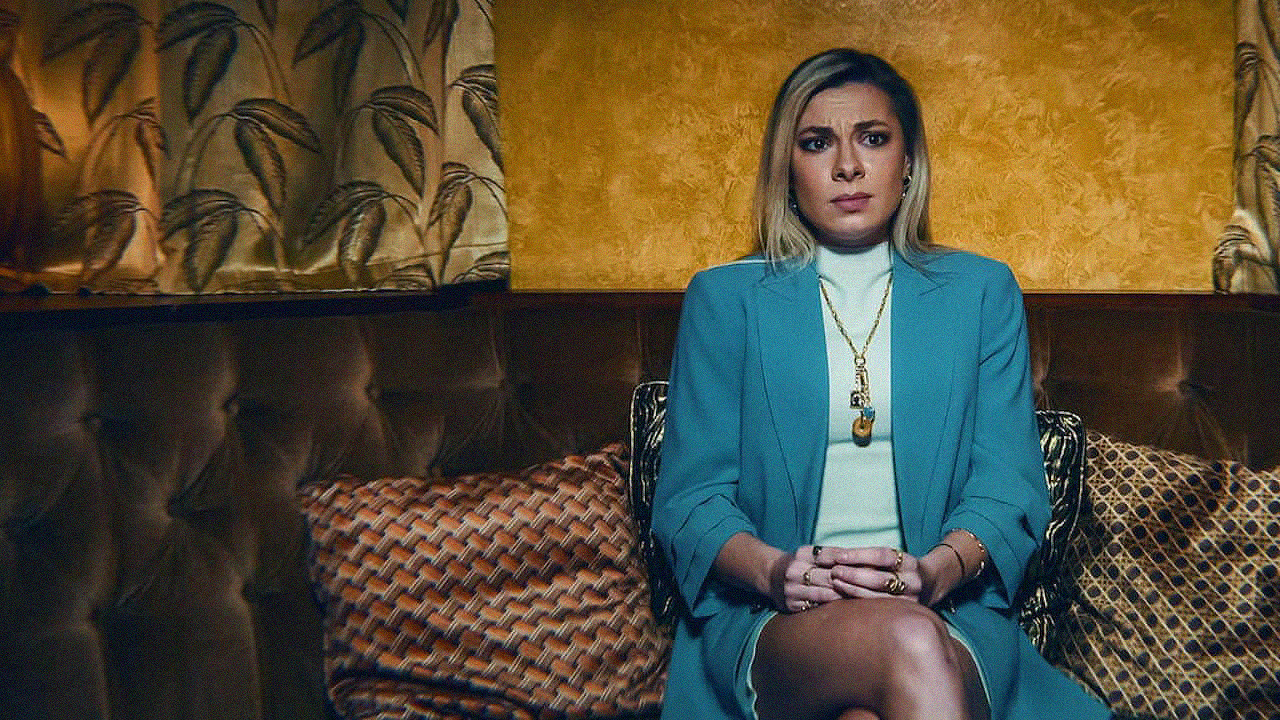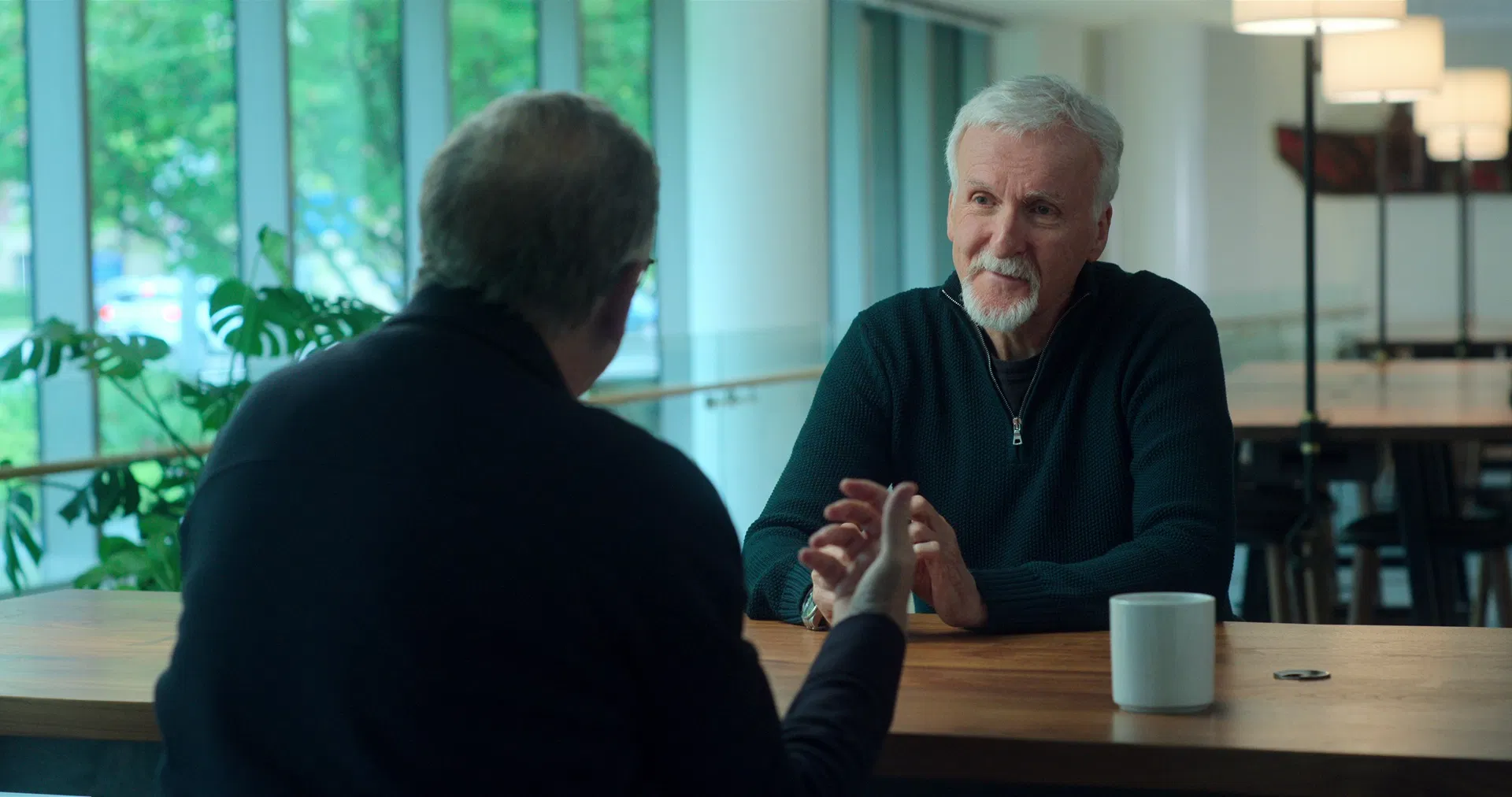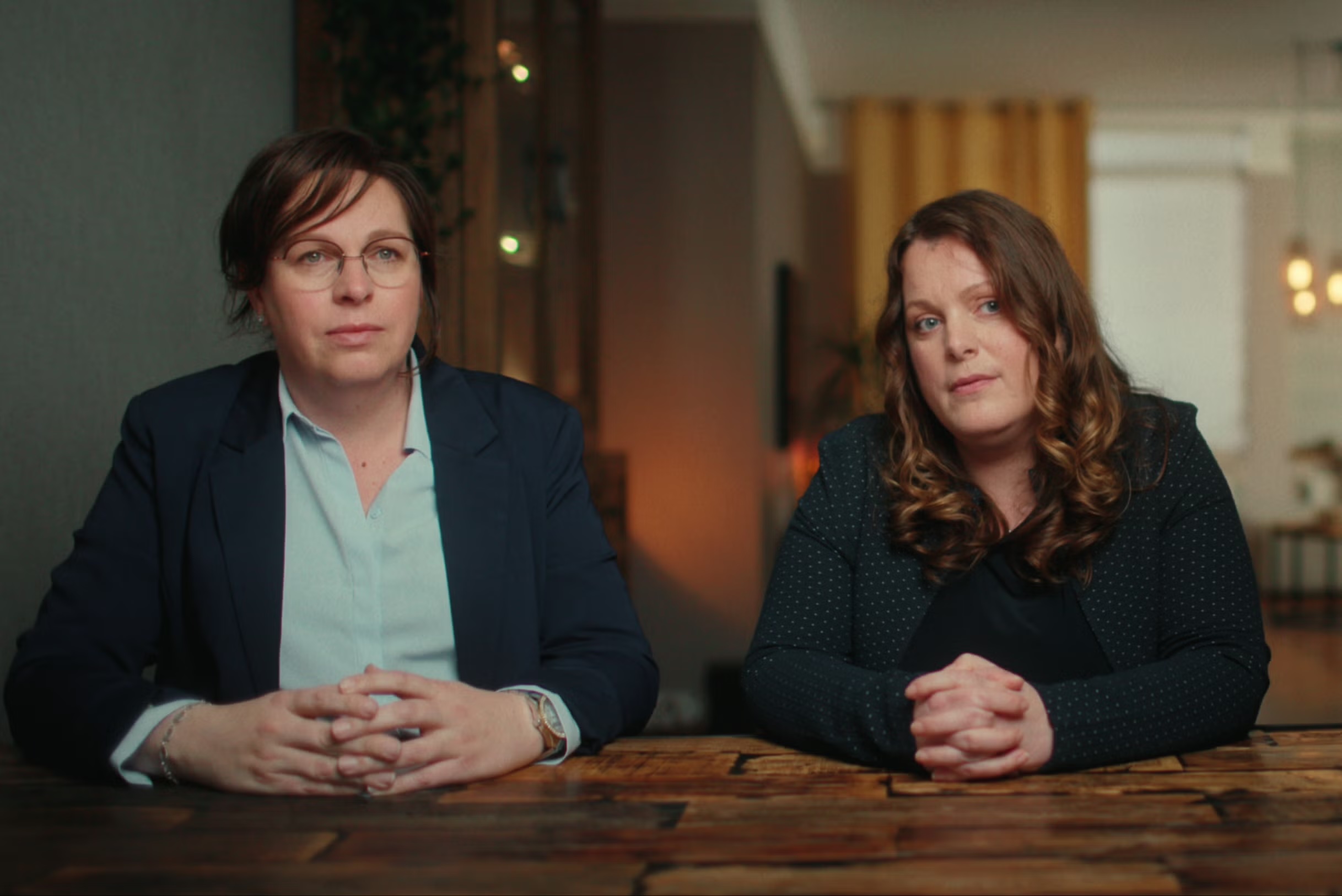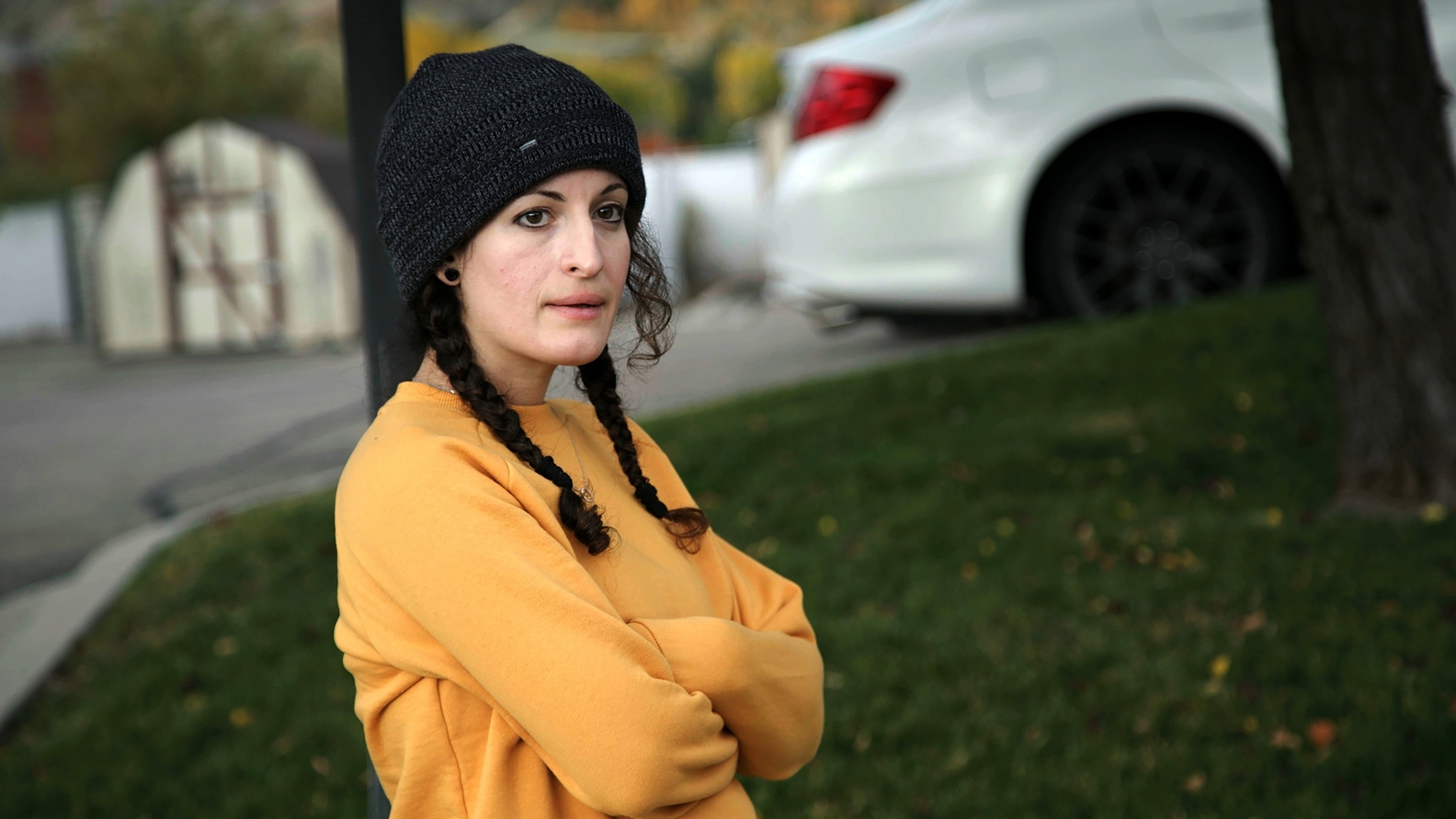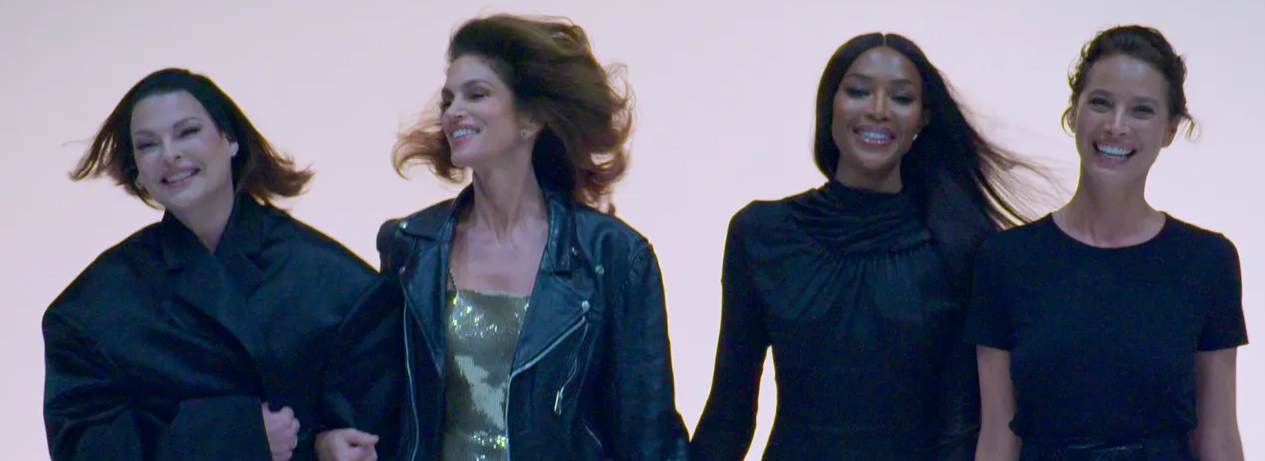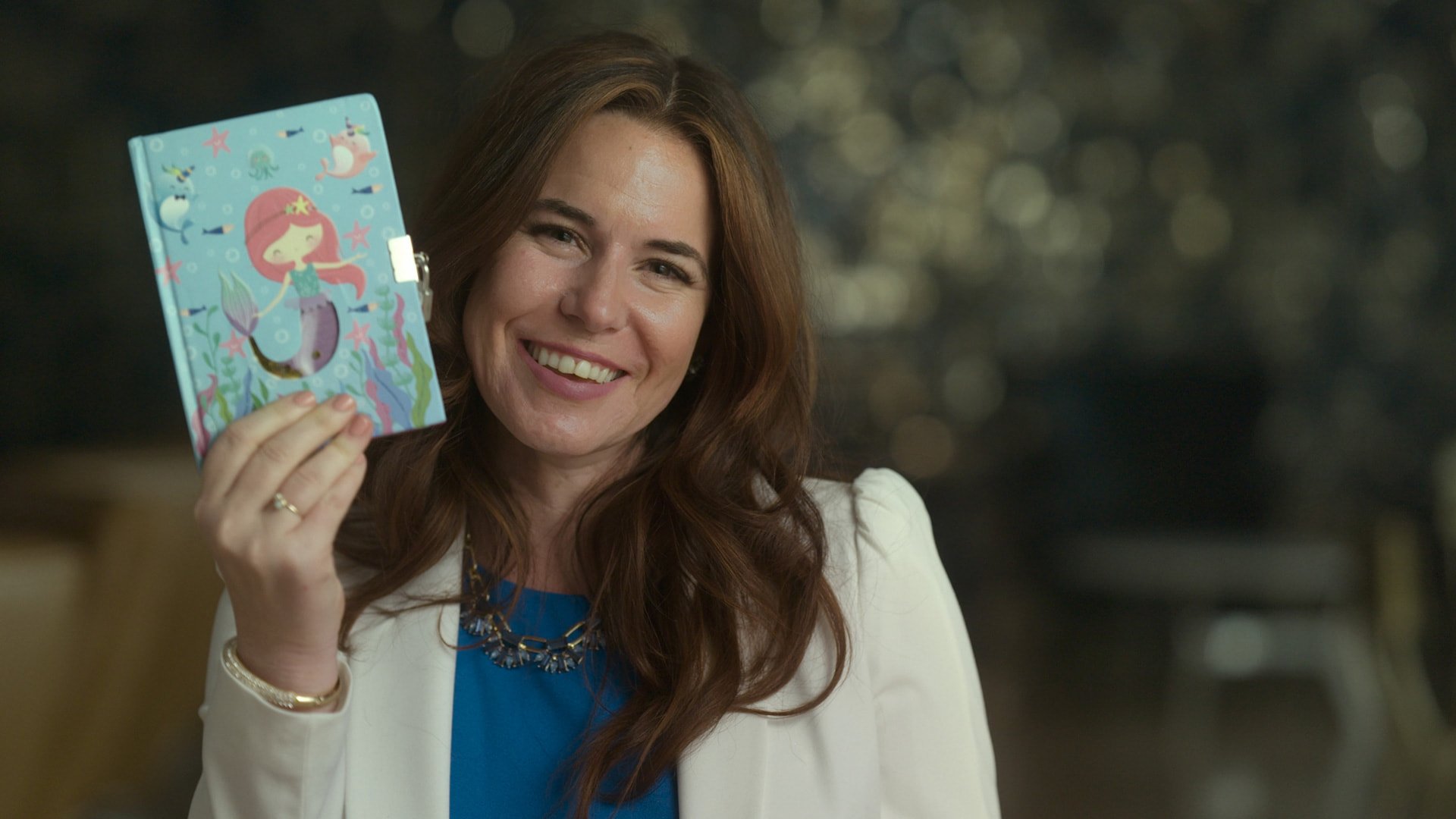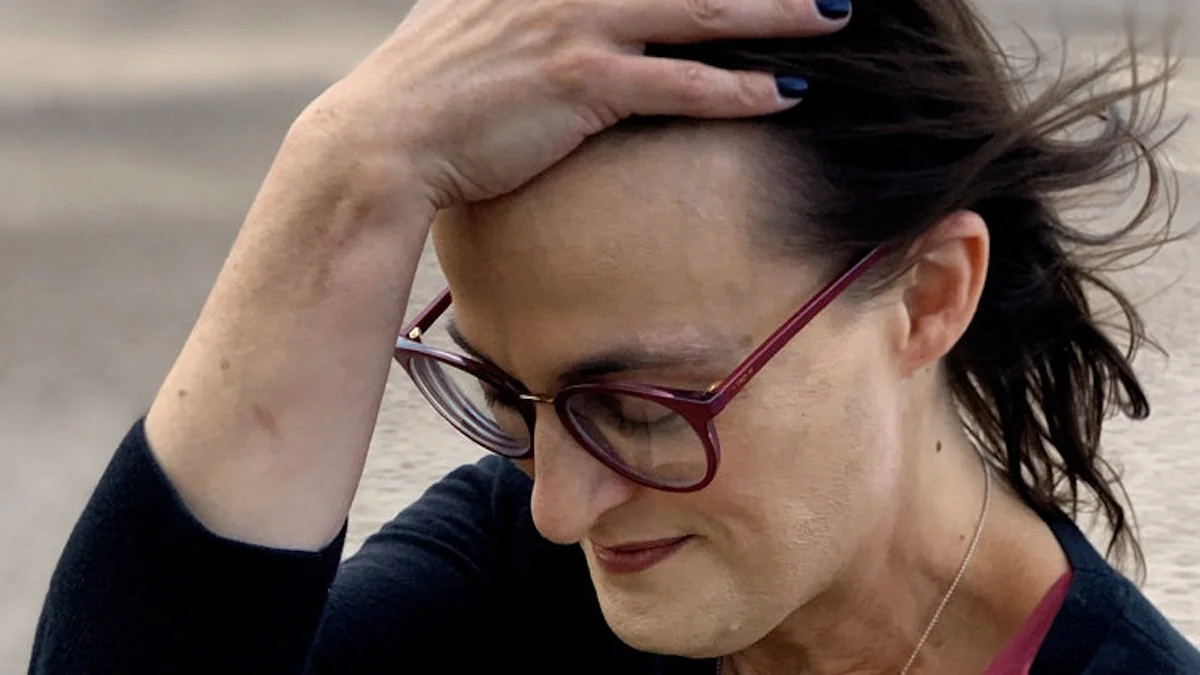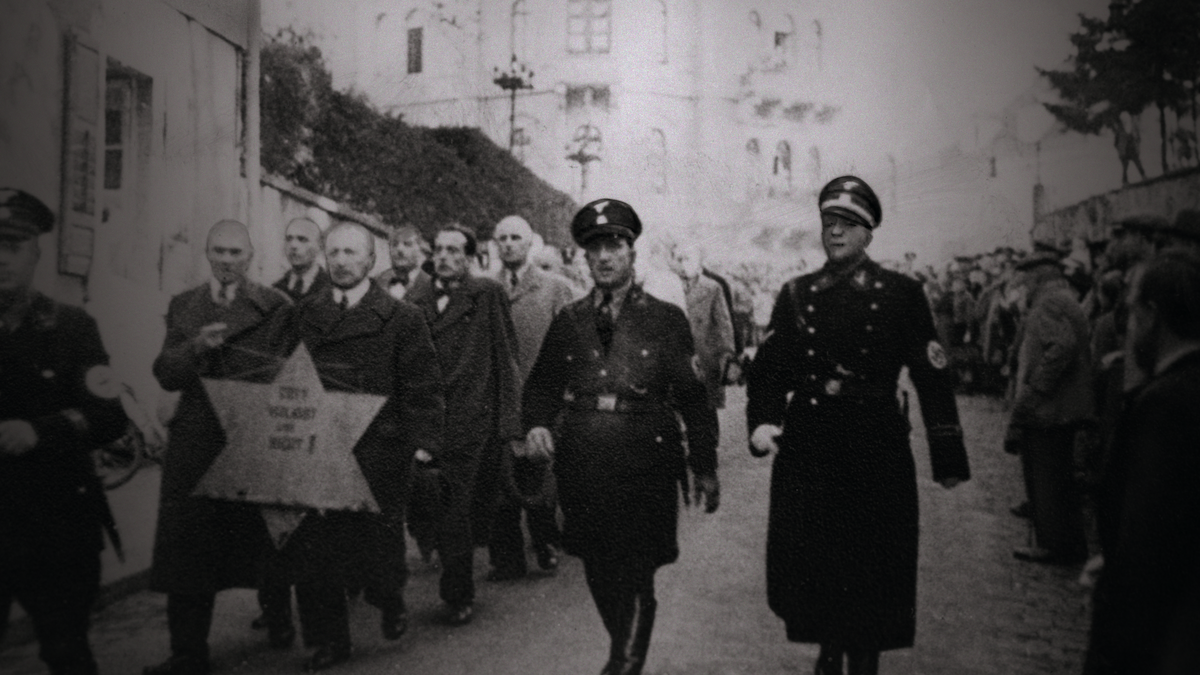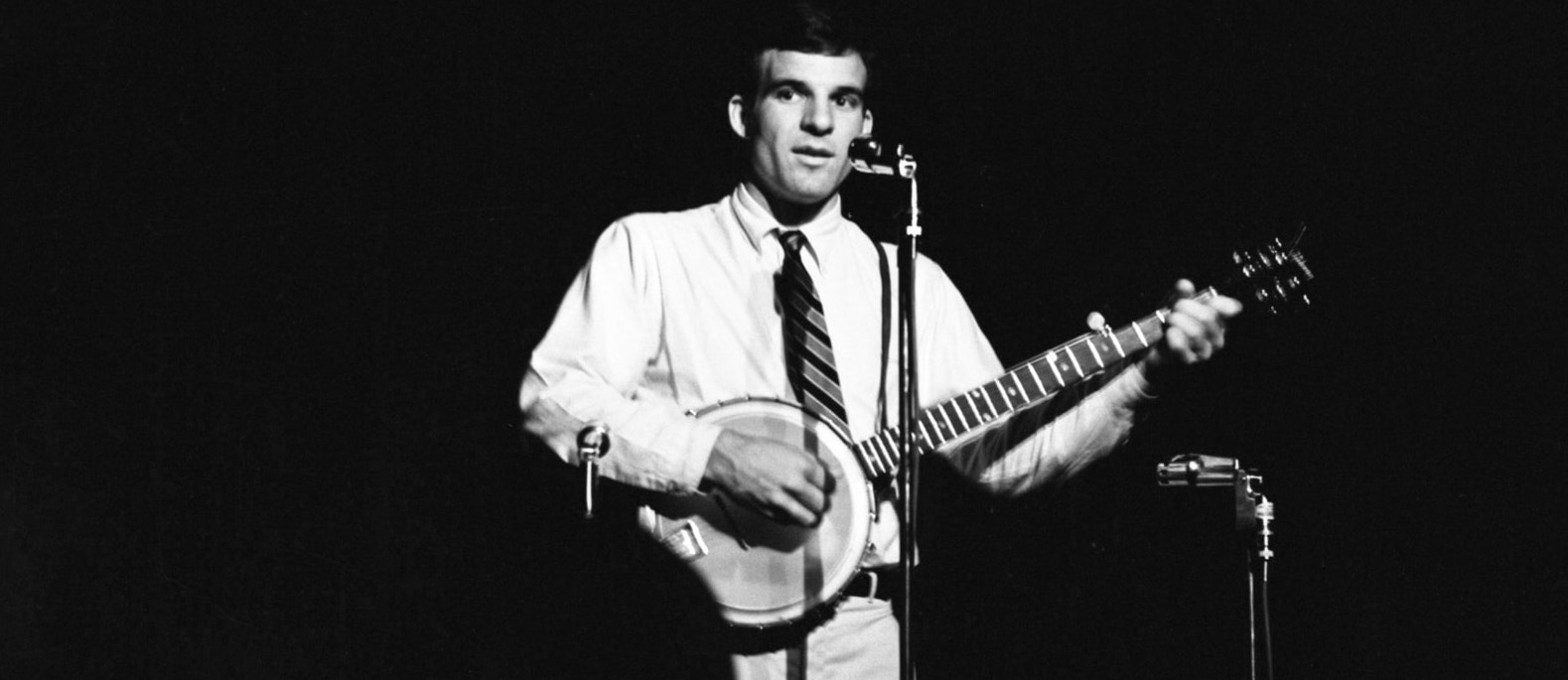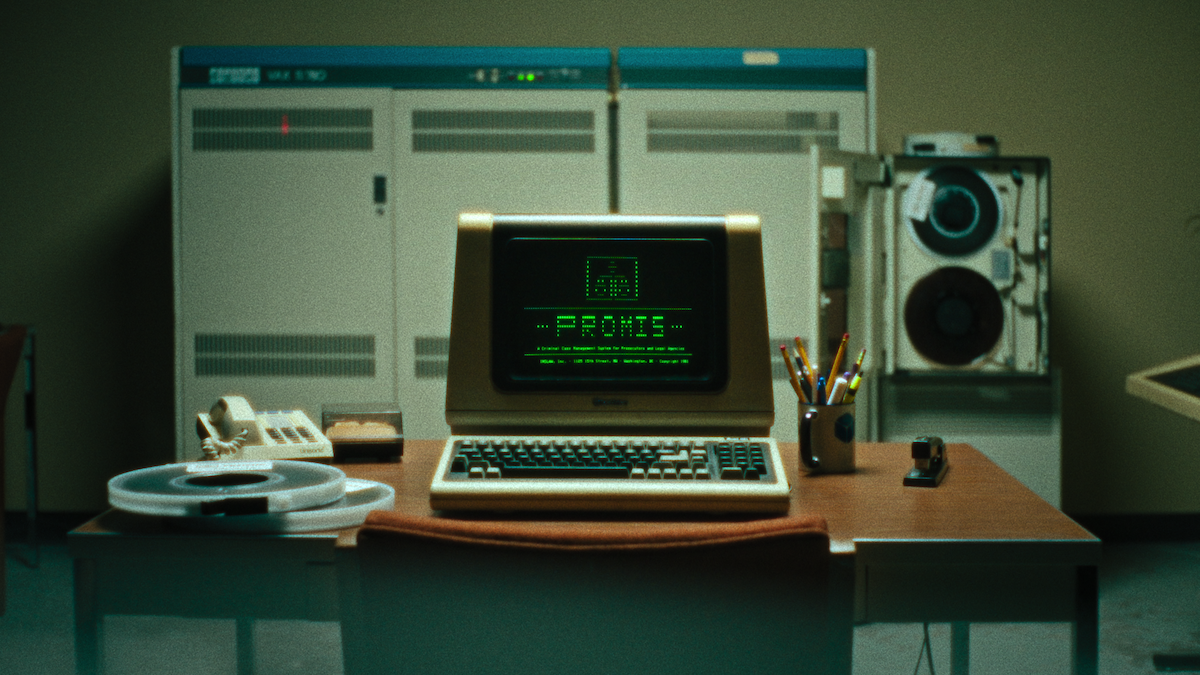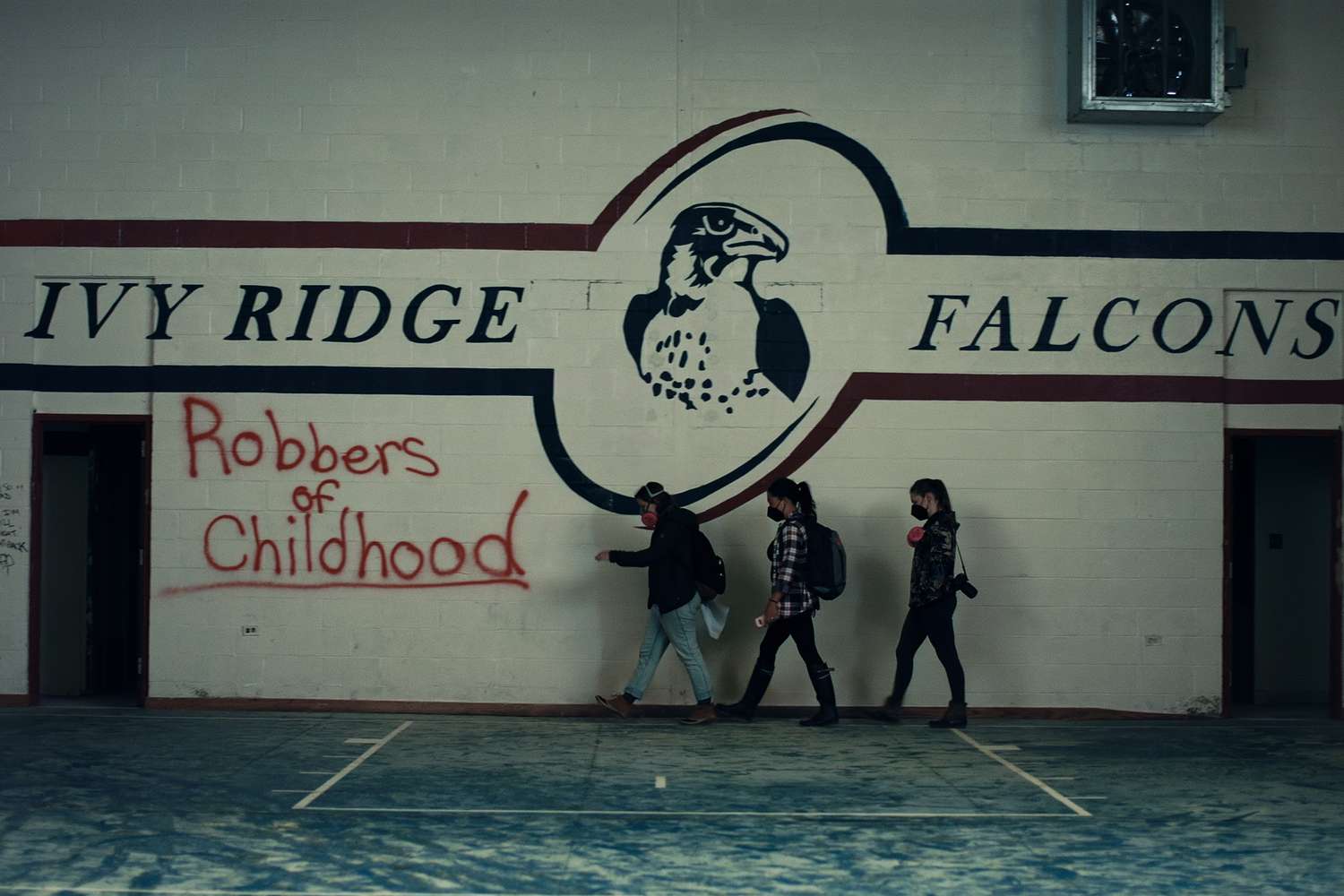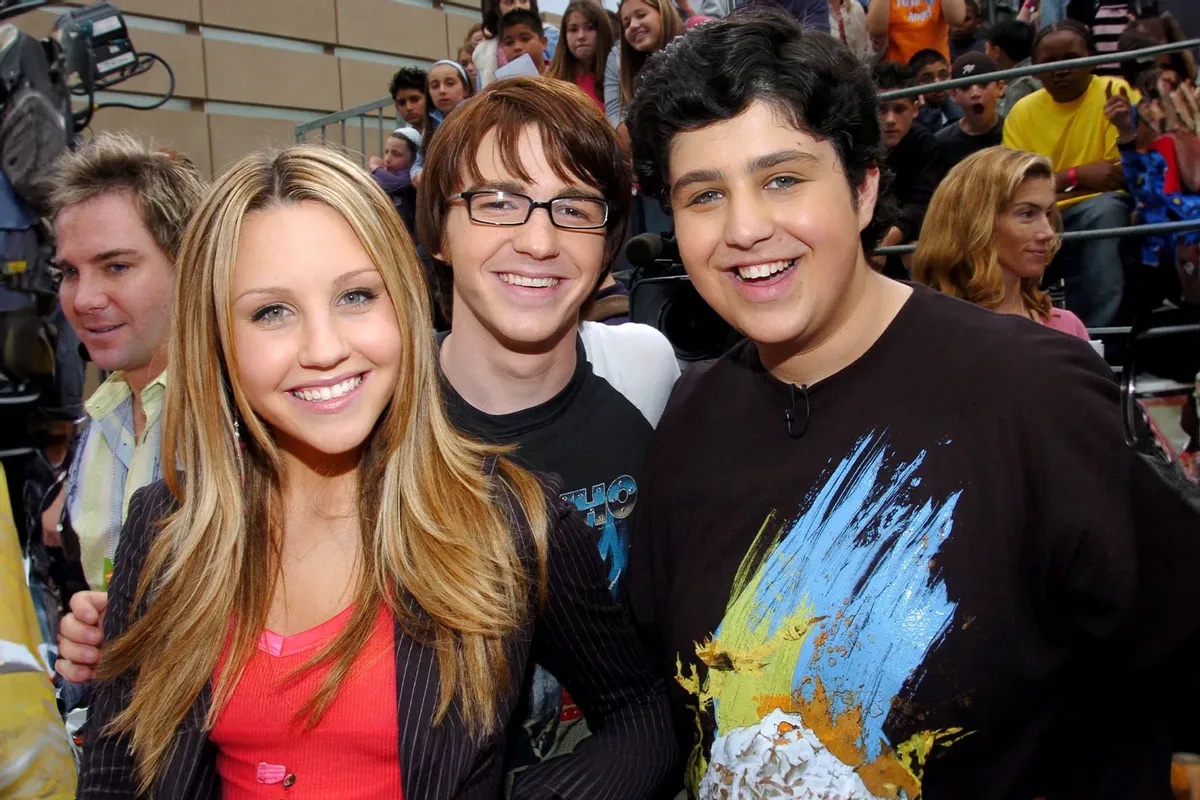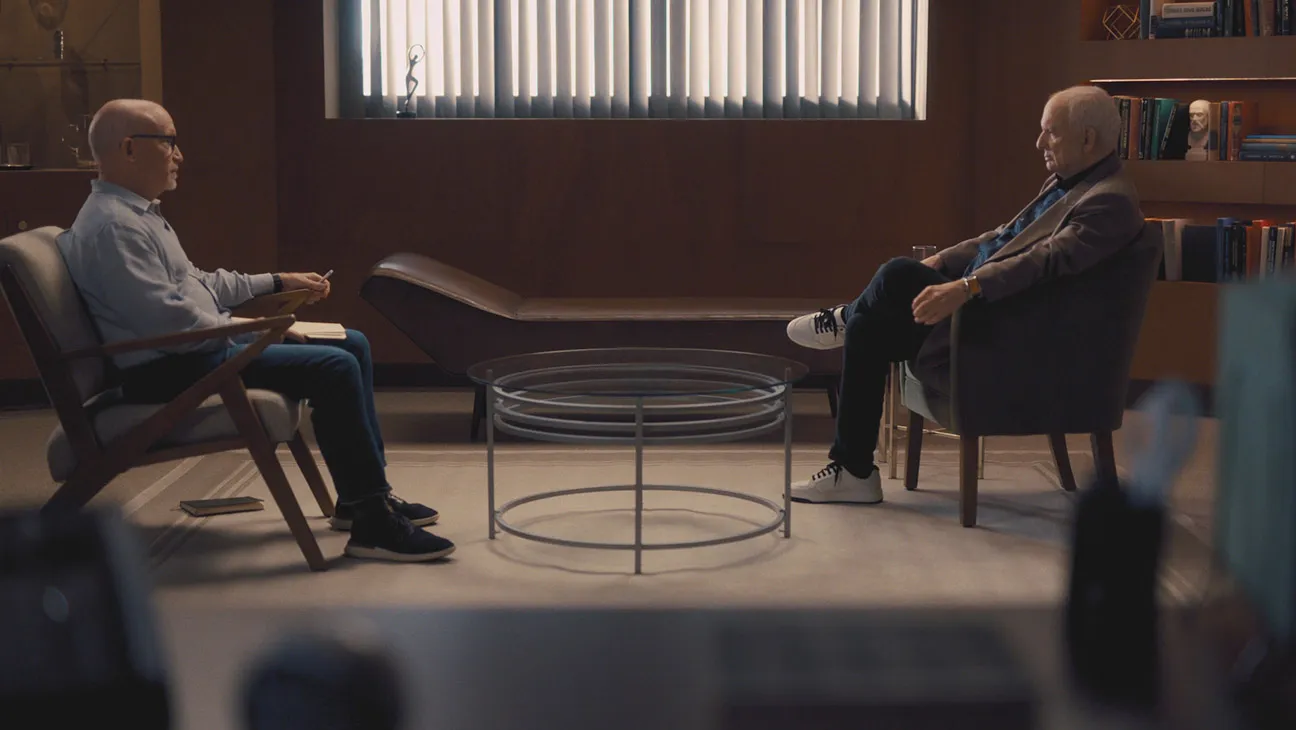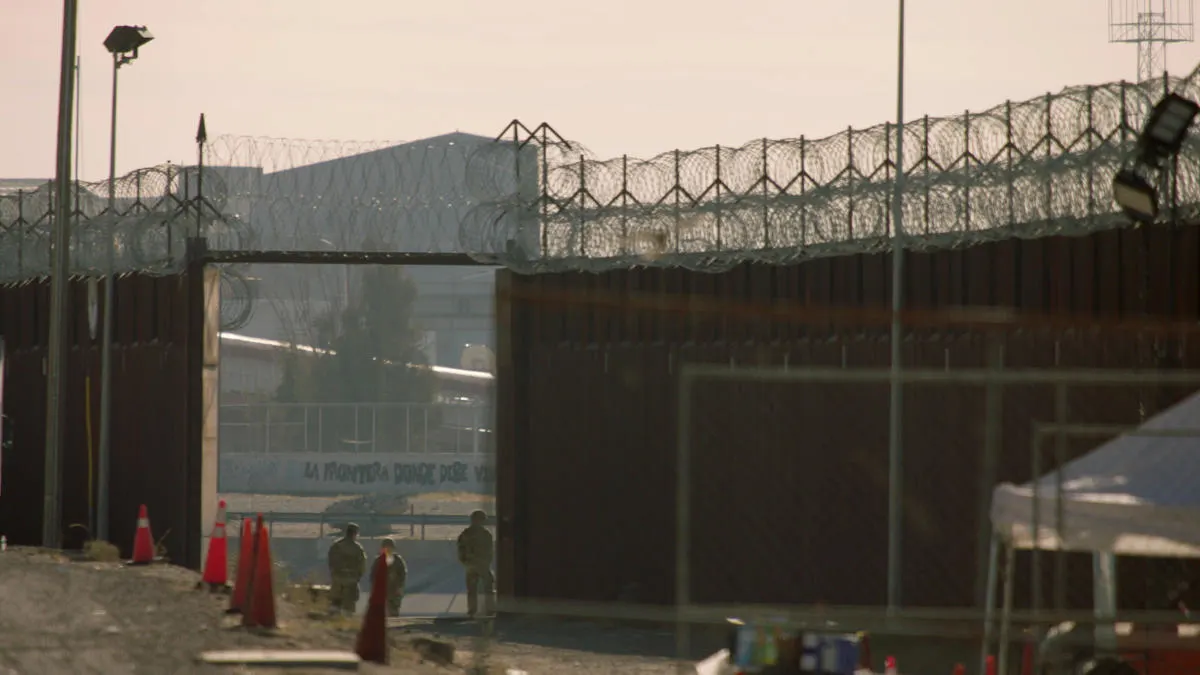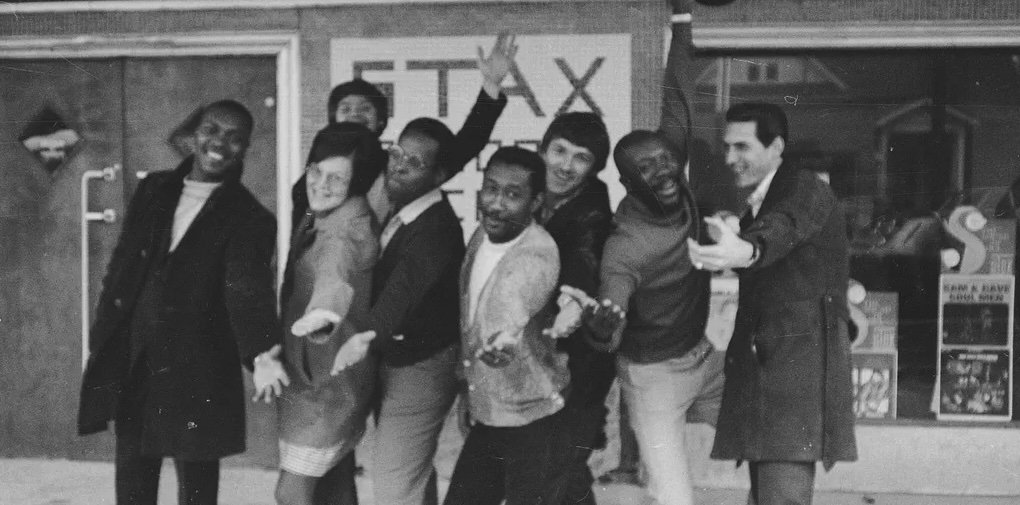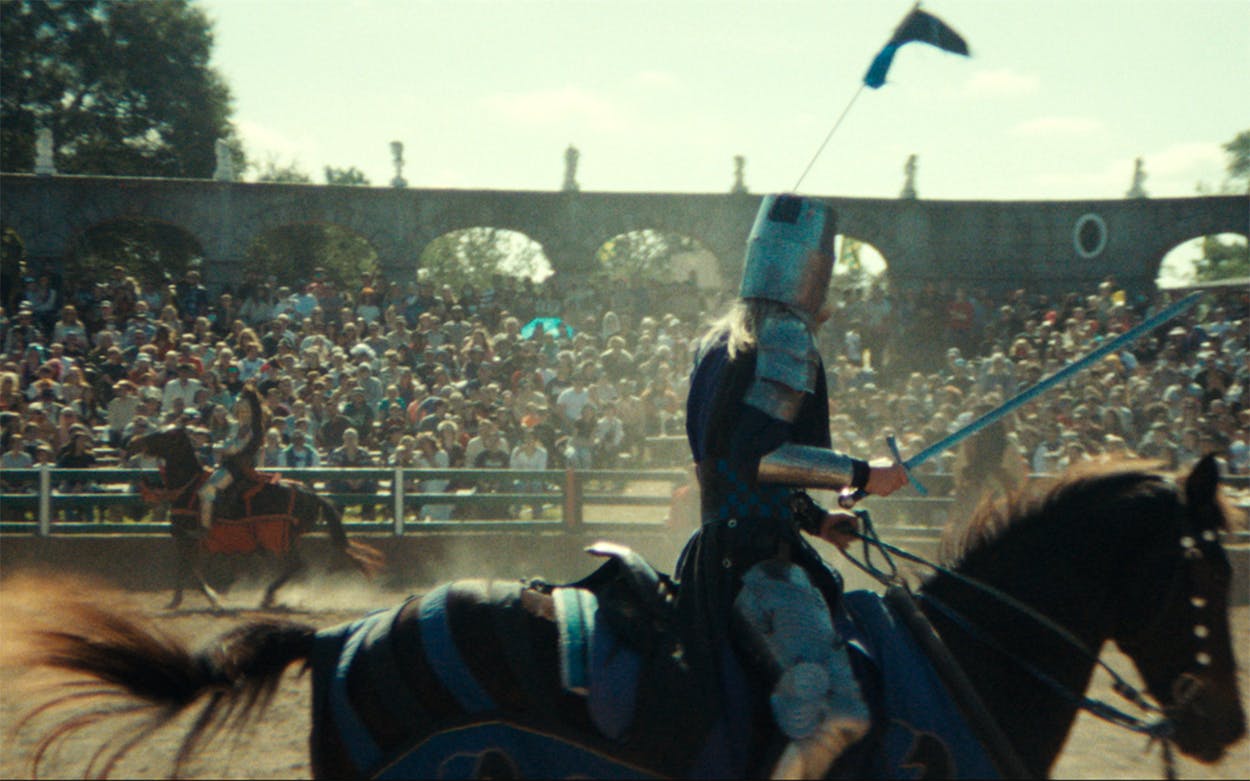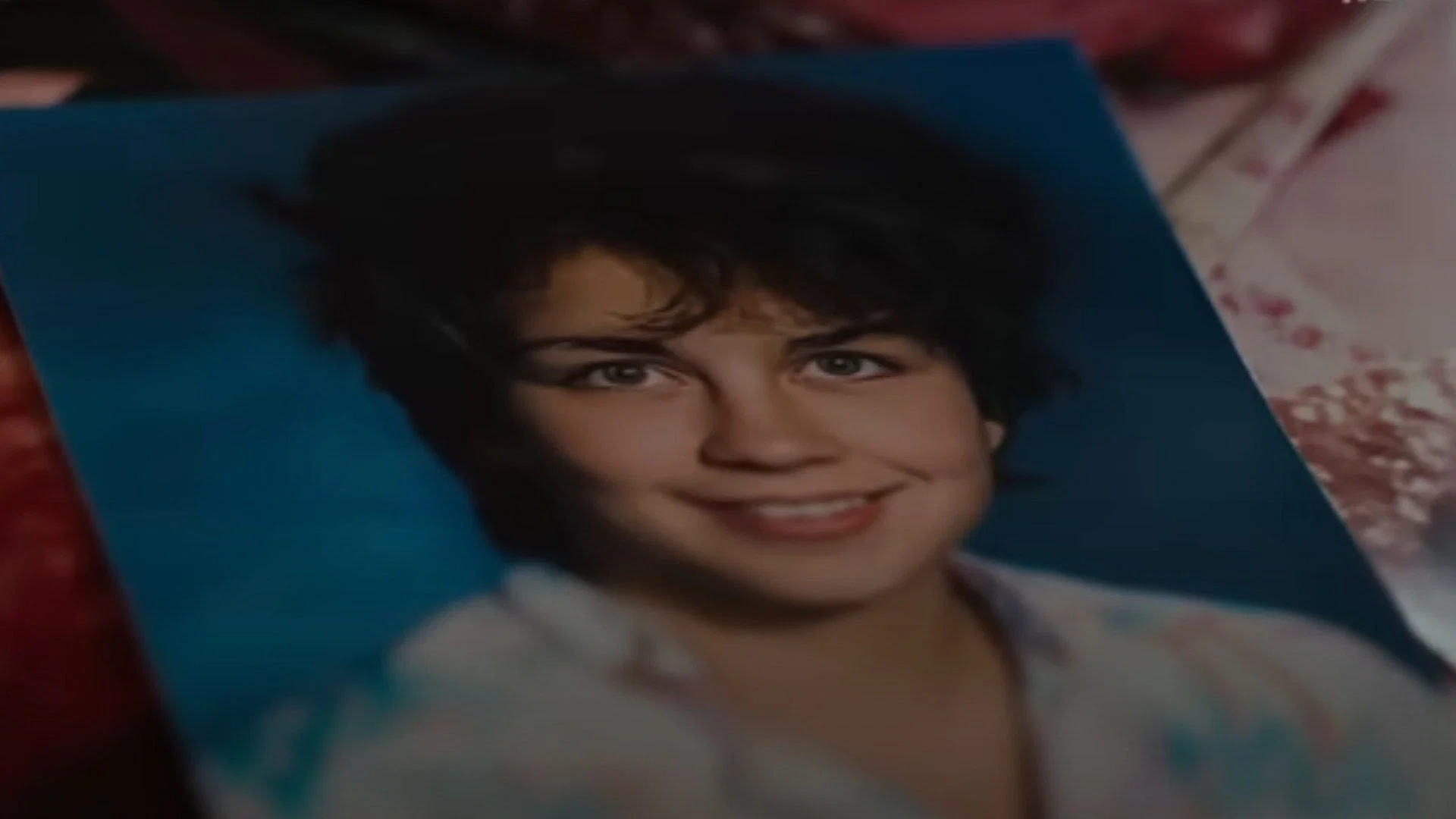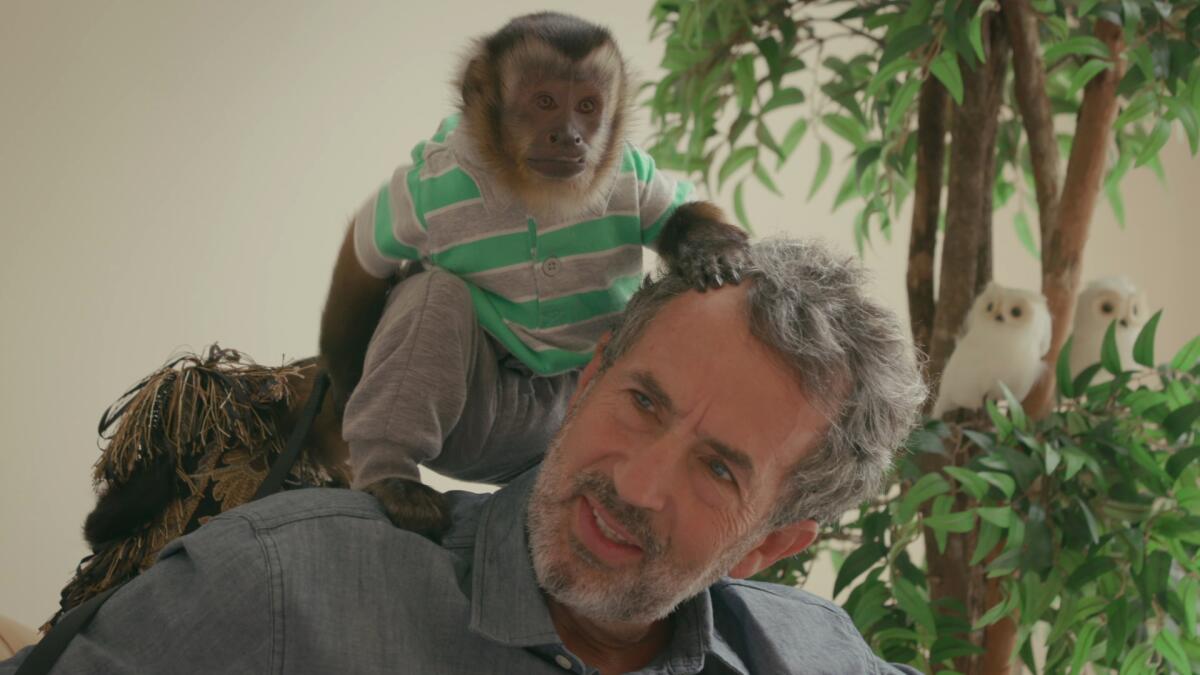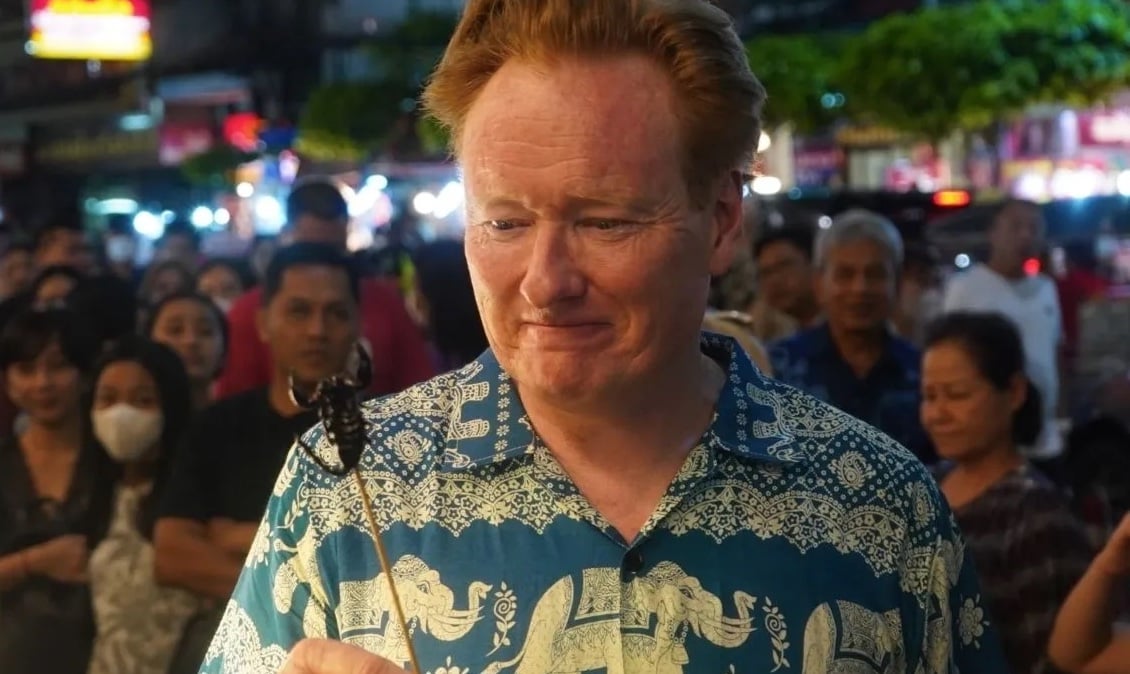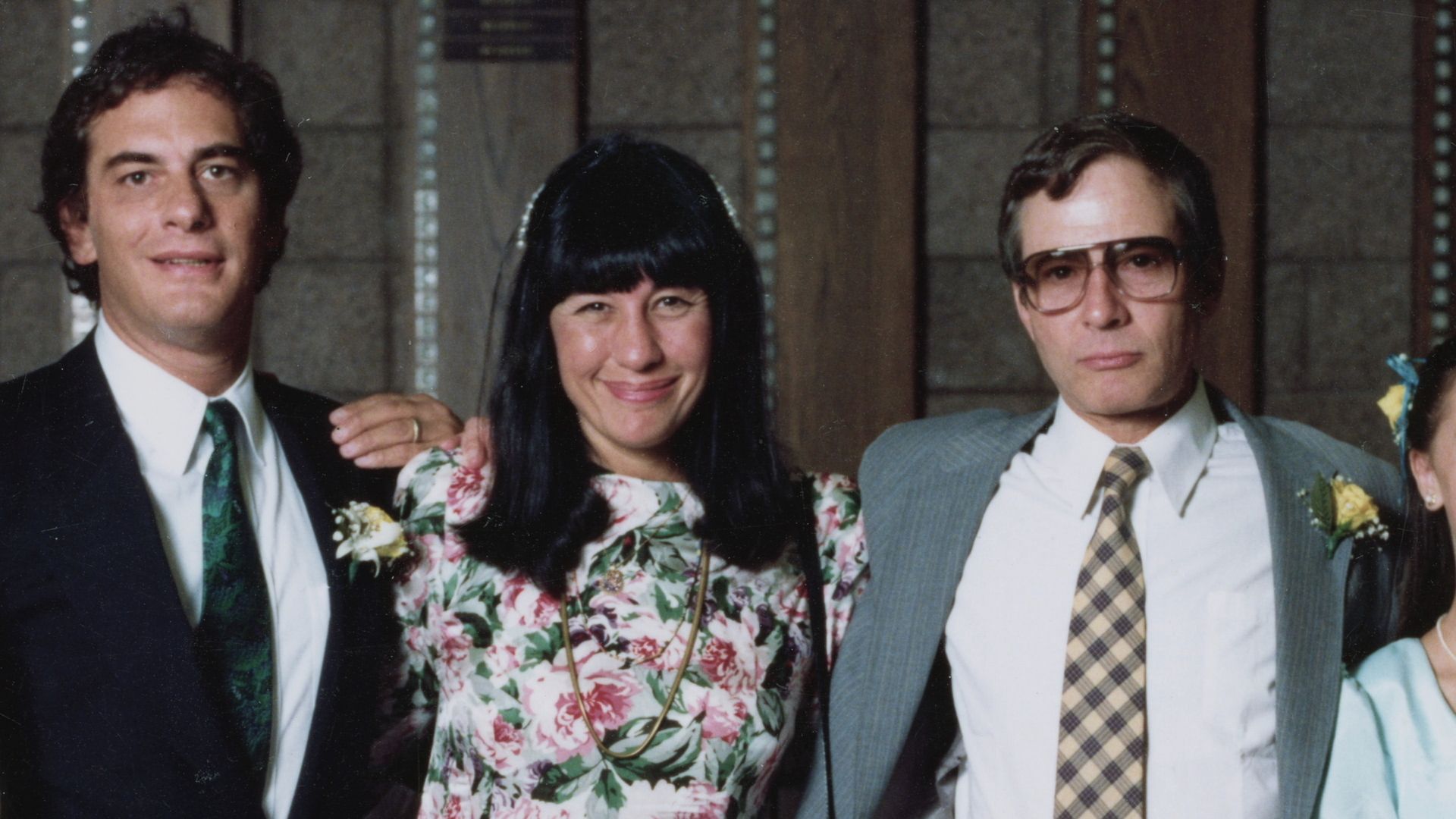30 Best Documentary TV Shows of 2024
At once educational and entertaining, documentaries are a great way to learn more about the world. There are biographies as well as nature docs, history lessons as well as cautionary tales. But while the variety can be endless, the running time is not—that is, if you’re watching a documentary feature. Docuseries on the other hand have a lot more leeway to discuss whatever topic interests you. Ranging from three to ten episodes, these shows cover more bases and reveal more truths than a typical one-sit-down documentary. So if that’s what you’re looking for, then sit back, relax (or put you’re thinking cap on, since some of these can get heady), and enjoy. Here are the best documentary shows of 2024 (so far!) that you can stream right now.
Can I Tell You a Secret? is a two-hour long documentary that hardly needs to be that long. The stories of the female victims are urgent and important, but the editing doesn’t do them favors. They’re dragged by repetitive music, repeated stock videos, and relentless reenactments, which seem cheesy and unnecessary. The docuseries also buries what I believe should be the main point: misogyny. It’s misogyny that allowed the perpetrator, Matthew Hardy, to harass his female victims for more than 10 years without real consequences; misogyny that blamed the women for sharing revealing photos; misogyny that made the police dismiss their cases as trivial and unimportant. It’s clear that these women need to be taken seriously for anything to get done. Unfortunately, the documentary doesn’t seem all that interested in doing that.
What’s Next is undeniably educational. Each episode dives deep into a different timely topic and gathers experts, along with Bill Gates, to dissect the most pressing issues arising from those topics. Namely, each of the five episodes in this series is dedicated to AI, misinformation, global warming, class inequality, and diseases. Guests include the likes of Bernie Sanders, Mitt Romney, Mark Cuban, Lady Gaga, and James Cameron. But while Gates’ philanthropic interest is admirable, these topics are ultimately too thorny and divisive to cover properly. Often, it feels like Gates is justifying his stance—he’s pro AI and capitalism, naturally—and so achieves an unintended effect. Instead of seeming hopeful and objective, he and his series come across as defensive and fearful. It’s also quite impersonal, for something that has Gates’ name attached to it. I get it, he’s a student of life, but you can’t help but wonder if this is just another way the ultra-rich like to boast their wealth. I have so much time and money I might as well try to solve the entire world’s problems, he seems to say through the series. Props to Gates for not shying away from the glaring class issue and even interviewing anti-billionaire Bernie Sanders himself. But if that scene reveals anything, it’s that these problems are abstract to him. Does he think he’s too rich? One interviewer asks him. Is the current capitalist system working? Sanders piles on. Gates only grimaces, but his silence gives the answer away.
If you’ve seen a Netflix true crime documentary, then you’ve seen them all. The Man with 1000 Kids, produced by the same people behind Lover, Stalker, Killer, isn’t novel in the way it looks or moves. Each episode contains simple graphics, light reenactments, and gripping cliffhangers. But it tells, nonetheless, a riveting story, one that’s hard to look away from or turn down. Meijer, the man in question, declined to comment and thus doesn’t make an appearance, but as an aspiring YouTuber and musician, he’s thankfully left a digital trail that provides insightful (and infuriating) insight into his strange MO.
Years after the #MeToo movement began, a lot of things remain confounding about Kevin Spacey’s sexual assault case, partly because he has always been a private man, and partly because not a lot of light has been shone on his victims. The most prominent victim, actor Anthony Rapp, sued Spacey for sexual misconduct, but his case was one of many that was ultimately dismissed. This makes the two-part documentary Spacey Unmasked an important and illuminating watch. It gathers 10 testimonies across 50 years and effectively establishes a pattern of Spacey’s abusive behavior. Along with platforming the victims, it also opens conversations about male sexual assault and how it intersects with gender and sexuality, which gives the documentary more layers than expected. I only wish the filmmakers spent more time weaving this tale into a more cohesive one, with less repetitive takes and bolder stylistic choices. It’s urgent viewing to be sure, but the filmmakers aren’t doing the victims any favors by editing them in this simplistic manner.
Though the “troubled teen industry” is a worthwhile topic, this miniseries gives it the same indistinguishable treatment as the rest of the other true crime documentaries out there. There’s the sensationalist music and the reductive interviews, which equate survivors to their trauma and nothing more. It’s hard not to compare this Max miniseries with Netflix’s The Program, which also recently came out. The latter is more personal since the survivors reclaim their stories and find creative ways to tell them. Though Teen Torture has more history, context, and a variety of interviews from across the country to back it up, those elements ultimately make the series seem more scattered and less urgent than it should be.
There is no doubt that Queens is an epic, enjoyable spectacle. Unbelievably, the camera keeps pace with creatures as dangerous as lions and as tiny as bees, even capturing them in clear view at night when some of them are at their most ferocious. And these scenes are set against a rousing score of modern rock and pop songs, which feels refreshing. Why nature documentaries feel the need to use the same tedious instrumentals when they could’ve been doing this is beyond me. However, as resonant and compelling as narrator Angela Bassett’s voice is, the writing itself leaves little to be desired. It forces the narrative that these female rulers of the wild are very much like the female rulers of our society, when in fact, the two could not be more different. Where we’ve had to fight and claw our way to the top, some of these animals like the mighty elephant and lioness have always lived in matriarchal communities. Alternately, whereas drama and morality rule our lives, instinct and nature rule theirs. It doesn’t feel truthful or scientific to deviate from those facts, which is a shame because the show is otherwise a very engaging, educational, and empowering watch.
This docuseries doesn’t say anything particularly new about the ‘90s, but that doesn’t make the journey to the past less fun and fashionable. The filmmakers behind In Vogue, seemingly aware of their limited knowledge, compensate substance with stars. There are too many celebrities to count here. There are tastemakers like Hamish Bowles, supermodels like Kate Moss and Linda Evangelista, actors like Gwenyth Paltrow and Sarah Jessica Parker, and of course Anna Wintour herself, all breathlessly recounting the revolution in ‘90s fashion. Maybe it’s just nostalgia, or a credit to the exhilarating way the documentary is edited, but the decade does come alive here and makes a convincing case for how it changed the game. Suddenly, red carpet fashion is a thing, models are instant celebrities, high fashion is synonymous with pop culture, and minorities are slowly but surely gaining recognition for their influence in setting trends. If anything, In Vogue is a pleasant way to pass the time. Not all that demanding or challenging, but an interesting reminder of the way things were.
True crime documentaries have a way of stretching out a thin story for views. For instance, what could have been an hour-long film is tediously and often unnecessarily extended into five or so episodes. Thankfully, that’s not the case in Hollywood Con Queen. Three hours is a reasonable length to cover Harvey Tahilramani’s wild crimes and even wilder stories. His biggest offense thus far is pretending to be bigshot Hollywood executives (among them famed producer Amy Pascal and Universal chairman Donna Langley), then luring freelancers into flying all the way to Indonesia to deposit sums of money to his account. If he’s not manipulating them, he’s demanding them to commit sexual acts, effectively abusing them. Despite that, Tahilramani is convinced that he is somehow the victim of all this scheming, and it’s his first-hand account, along with the victims’ harrowing testimonies, reporter Scott Johnson’s excellent reporting, and private detective Nicoletta Kotsianas’s staunch investigation that make Hollywood Con Queen a compelling true-crime watch.
Anatomy of Lies, as much as it can, follows the complicated web of lies TV writer Elisabeth Finch has told throughout her career, among them: that she has cancer, that her brother died of suicide, and that she witnessed her friend being blown to bits in a mass shooting. Her transgressions range from icky to downright immoral, and this three-part documentary smartly and sensitively tackles them all, even if key figures from the narrative are missing, including Finch herself. Instead, most of the story is told by Finch’s ex-wife Jennifer Beyer, who bravely represents how much harm these lies can create. My only issue with the doc is how much it expects audiences to know about Finch already, so it takes way too long to drop the ball and expose what she’s done in clear terms. Otherwise, the show is as juicy as it is horrifying, while also posing that age-old question: is it excusable for a writer to use other people’s trauma for their own storytelling purposes?
I’ve seen my fair share of true crime documentaries, and a major complaint I have is about how directors tend to overdramatize the story, so much so that it achieves the opposite effect for me. I feel desensitized and irate when the music swells to usher in yet another cliffhanger. So it’s refreshing to see almost none of that in Cowboy Cartel, which is well-edited and gripping enough to keep you hooked till its finale. Of course, the downside to stripping a crime story of sensationalism is that it can get boring in its straightforwardness. This happens more than a few times in Cowboy Cartel, and it doesn’t help that its main interviewee, FBI Agent Scott Lawson, recounts events in a sleepy and monotonous tone. Still, it’s tightly edited, well-researched, and intriguing case. The documentary itself may not always match its energy, but when it does, it’s a show that’s very hard to put down.
Countless documentaries have been made about The Third Reich’s rise to power, so Berlinger’s Hitler and The Nazis doesn’t particularly tread new ground. It starts with Hitler’s childhood and political beginnings, which anyone with a cursory knowledge of world history should know, but it picks up by the second episode, when it finally settles into a rhythm of stunning archival footage, realistic reenactments, expert commentary, and Shirer’s AI-recreated voice. The latter is chilling, not just because it recounts horrific events but also because it sounds strangely, unfittingly mechanical–to say nothing of the unnecessary use of AI when hiring a voice actor would’ve done the trick. Other than that, however, Hitler and the Nazis is a meaty historical account of a past that shouldn’t be forgotten, one that the newest generation will do well to watch.
For better or worse, Sprint is shot like a reality show. There’s an overflow of competitiveness, confidence, and consequently, drama. The jabs are subtle (except when they’re coming from the Americans, who are the most entertaining of the bunch) but they’re largely felt, which counts in a sport that requires a surprising amount of mental fortitude. This naturally makes for great entertainment, but the unfortunate result is a neglect of technical aspects of the game. There’s no scientific breakdown of historical background, which one think would fit somewhere in the six episodes, but it is an insightful account of the inside lives of such colorful characters.
Directed by Morgan Neville (20 Feet From Stardom, Won’t You Be My Neighbor), Steve! is an appropriately fun and artistic documentary capturing its subject matter’s fun and artistic spirit. It’s a delight to see Martin’s other personas, such as his early magician self, his philosophy major self, and his quietly humorous cartoonist self. We’re so used to seeing his fast-paced zaniness that these parts of the documentary are almost shocking to see. But maybe the most illuminating role Martin plays is that of his current self. In equal measure, he cracks jokes and offers wise words about aging which, at 75, he takes in enviously great stride.
In Restless Dreams is comprised of two parts. The first, a walk down memory lane, will likely be everyone’s favorite. It stitches old clips of Paul Simon and Art Garfunkel, way back when the two performed as the doo-wop band Tom and Jerry in the ‘50s, and follows Simon all the way to England and back in the US for most of the ‘60s when he wrote classics like The Sound of Silence and Mrs. Robinson. This is brought to life by wonderful editing, the thoughtful and tasteful kind that makes you sigh in awe and go, at peak moments, “Oh, so that’s what that song is about!” It supplements Simon’s narration which, thankfully, isn’t too on the nose. The second part follows 80-year-old Simon in the present as he tries to realize a dream of a song he’s had, called Seven Psalms. Witnessing an artist as gifted as Simon still chip away at his craft isn’t just inspiring; it feels like a sacred treat, a special and almost intrusive look into the inner workings of a musical genius.
The so-called “Octopus,” that is the eight powerful but sketchy individuals journalist Danny Casolaro believed to be in control of the entire country, is already a complex topic. Crazy, but impressively complex. Equally interesting is the series of mysterious deaths allegedly committed by the Octopus, which includes what looks to be Casolaro’s framed suicide. This four-part documentary by Netflix efficiently dives into all of that with the added bonus of duo Zachary Treitz and Christian Hansen’s perspectives. The former is the director who expertly weaves all the tangles into a coherent web, while the latter is our guide into it, a researcher who wishes to follow in Casolaro’s footsteps despite the multiple signs that he should maybe stop, if not out of fear of what lurks in the shadows then out of fear of insanity. Not only do Treitz and Hansen relay the information in an accessible and intriguing way, they also effectively reproduce that paranoid feeling of falling deep into a conspiracy rabbit hole. If you’re not a fan of true crime, this is worth the watch if only for that feeling.
The Program starts small and intimate, with director Katherine Kubler sharing the story of how she got into a school that turned out to be, in everything but name, a prison. In Ivy Ridge, Kubler and her peers were physically assaulted and subjected to cult-like practices, with most of the kids leaving the institution worse off than better. But soon the diaristic approach gives way to a complex and well-researched investigation of what is known as the “troubled teen industry.” As it turns out, there are plenty of other institutions like Ivy Ridge that scam desperate parents into spending thousands of dollars to incarcerate their kids and hand them over to faux educators. There are times when Kubler’s anger (understandably) gets the better of her and the storytelling, but ultimately, this is a well-made and important account of an overlooked atrocity.
It’s not news that child actors don’t have it easy in an industry that’s more interested in exploiting than protecting them. Theirs is a story of trauma and difficult adulthoods, but it’s also often told in a sensationalist way that dehumanizes them. “Child Actor Goes Rogue” continues to be a headline favorite in tabloids, but maybe all that is set to change with the release of Quiet on the Set. This four-part documentary is by no means revolutionary—in fact, it’s as straightforward as any true-crime series out there. But it importantly lets the now-grown-up victims (or their loved ones) tell their story on their own terms. The misdeeds covered here range from degradingly misogynistic behavior in the writers’ room to outright child pedophilia and rape. Though it sometimes feels like the directors could have handled these issues more delicately, instead of jamming them all in bite-sized episodes, you still come away from it knowing and wanting to do so much more.
Apple TV+’s stunning Omnivore is sleek and stylish enough to make it stand out from the usual food and travel shows you might find on TV. There are expertly shot scenes from around the world, exclusive interviews, and maybe best of all, a well-written script that’s just as colorful and delectable as the dishes onscreen. Each episode, which hones in on a specific ingredient like corn or chili, has a tight runtime at just 30 minutes, making it extremely bingeable (though ideally not on an empty stomach). That said, the show might be too polished for viewers who are expecting the gritty and immersive approach of a chef like Anthony Bourdain. Omnivore, for all its explorative language, is suspiciously idyllic at times, all too eager to paint the global food industry as a harmonious process as opposed to an enterprise that is involved in global warming, animal poaching, and deforestation, among others. Every industry has a dark side, and I just wished the show appreciated the nuance in that. Still, it’s an engaging watch with glowing moments.
Starting 5 takes some of the best players in the NBA’s current roster and follows them throughout the latest season. We follow them in their training sessions, their homes, their private jets, and even during the most intense games, where we get to hear them trash-talk their opponents through their mic’d uniforms. As to why these five specific players, one can only guess (there are certainly others in the league who lead more interesting lives, or whose rise to fame might be equally if not more promising) but they do contrast well enough to entertain. Rising stars Jayson Tatum and Anthony Edwards are positioned against NBA veteran LeBron James, whose only true nemesis at this point is himself. Jimmy Butler, by far the most entertaining, is the comic relief who proves there’s more to life than just ‘ball and family (everyone here is a dedicated father), while Sabonis’ patience and gentleness temper passions. The series doesn’t go too in-depth into the athletes’ lives or their psyches, but it has a template that’s enjoyable and easy to replicate. It’ll be fun to see which five it’ll deem worthy in the following seasons.
If you are a historian, a communist, a capitalist, a Russian or American citizen, you would likely already have opinions about the Cold War. But regardless of your knowledge on the topic, there’s no denying that Netflix docuseries Turning Point: The Bomb and the Cold War is such an ambitious documentary, dedicating a whopping 9 hours to explain the Cold War and its ramifications in such a comprehensive, well-paced way, trying to balance between various perspectives from all over the world. Of course, being from an American production company, it does slightly lean towards the American perspective, with some of the Netflix flair that you can see in their other documentaries. Nonetheless, The Bomb and the Cold War is a handy explainer to the history that still shapes many of today’s conflicts.
Wyatt Earp’s adventures in the Wild West are the stuff of legend. Indeed, plenty of Hollywood greats have tried to recreate—or at least, emulate—his mythology, from Jimmy Stewart and Henry Fonda to Kevin Costner and Val Kilmer. But maybe non-fiction is the way to go. That’s what I gathered from watching the deeply engaging six-part docudrama Wyatt Earp and the Cowboy War. The series blends well-acted dramatic performances with expert commentary from historians, and the cherry on top is that Ed Harris (The Man in Black from Westworld! Of course!) narrates with the kind of cool and character that makes you want to listen to him forever. But the key here is that balance between drama and documentary: it never feels too played up, thanks in large part to the actors’ lived-in performances (my favorite is Thomas Fitch), nor does it feel like a droning history lesson, even though we do end up learning so much more about Earp and the legendary shootout that occurred in O.K. Corral. It’s all edited so that you get different things, too, per episode. One serves as a riveting legal drama, another is more focused on the juicy love triangle Earp is involved in. All, however, are equally educational and exciting.
If Wise Guy reads like a biography of David Chase and an oral history of The Sopranos, that’s because it is simultaneously both those things. Chase’s story is The Sopranos’ and vice versa. As Chase reveals in this two-part documentary, The Sopranos was initially based on his mother and his childhood in New Jersey. But then the show evolved into something more profound and complex than anyone could’ve imagined. Free from the reins of network TV, it relished in its R-rating creativity and quickly became a cultural phenomenon. People tuned into it every night. It was celebrated and parodied in equal measure. Most important of all, it ushered in a new era of prestige television that valued substance more than anything else. There’s no better person to guide us through the ins and outs and behind-the-scenes of The Sopranos than the showrunner himself. Director Alex Gibney parallels his interview with Chase with scenes from the show, even matching its colors and texture, to further prove how inextricable Chase is from his creation. We see never-before-seen clips of casting, script writing, reception—the works. Wise Guy must be heaven-sent to hardcore Sopranos fans, but it’s also the perfect introduction for the uninitiated.
Sometimes thinking about your home state can feel complicated, because while it’s your home, the events and issues and controversies of the state can make people think differently of it. With plenty of controversies but also having the most residents, Texas does have a distinct cultural identity, and Texan native director Richard Linklater explores its different sides, including the sides unheard of, through the three-part God Save Texas. Teaming up with Alex Stapleton and Iliana Sosa, they tackle the Huntsville prison complex, the Houston oil industry, and the borders of El Paso, but they do so through a compassionate, personal perspective that simply and subtly shifts our understanding of the Lone Star State, and America as a whole.
Stax’s existence may have been short-lived, but its impact continues to be felt in every R&B record produced to this day. That’s one of the points this four-part documentary from HBO successfully makes so that by the end, you’re convinced Stax should be just as recognizable and appreciated as Motown, Atlantic, and other influential record labels. For the most part, the series resembles the typical documentary in that it’s propelled by animated talking heads and complementary archival footage, but the performances of Stax stars, including and most especially Otis Redding and Isaac Hayes, inject the documentary with an energy and electricity that pushes you to move and groove. The old-school editing feels thoughtful, too, while the additional animation adds a delightfully nostalgic touch. The documentary itself may not be as revolutionary as the events it captures, but it is just as enlightening, electrifying, and enjoyable.
The inherent drama of succession stories has always made for great, entertaining TV. You only have to look at Game of Thrones, Dynasty, Yellowstone, and, well, Succession to know that. With Ren Faire, director Lance Oppenheim (Some Kind of Heaven, Spermworld) ups the ante by following the real and ongoing power struggle between the Renaissance fair employees clawing and scratching their way to the top. They’re so animated and dead-set on inheriting a literal kingdom that Oppenheim and his team hardly have to do anything to color this tale. And yet, color it they do, to wonderfully cinematic and comedic effect. The employees are (willingly) dubbed “Lord of Corn” and “The Fairy Godmother,” while Coulam is of course the longstanding King. You get the sense that their feuds are heightened in the presence of the cameras, but feel entertained nonetheless. To cap things off, the documentary is shot using grainy unfocused film, sometimes edited in the trippy way low-budget 60’s films used to look so that it matches the surreal reality of the fair. The story could’ve been interesting on its own, but the artful and intentional way it’s told elevates it.
It’s easy to forget that Netflix helped boost the popularity of the true crime genre, especially since it’s pumping out a new series almost daily. A lot of them are rushed and sensationalized, but there are a few that are worthwhile. Into the Fire is thankfully the latter. Showrunner Jenna Lamia and Director Susanne Bier tell Terkanian and her daughter’s story in a refreshingly measured way, making sure to hone in on Terkanian’s restless energy. It’s that energy that rallies the community behind her in breaking open the case and uncovering many more missing persons besides her daughter. The same energy makes the show feel more dynamic and alive than other true crime documentaries. It’s also more restrained and respectful. No overdramatized suspense or sensationalized twists here, just an incredibly true story, cleverly and humanely told.
Chimp Crazy, like Tiger King before it, is a difficult watch. It follows chimpanzee owners and their almost fanatic loyalty to the primates (one famously breastfed a chimp and raised her as her child), but mostly it trails Tonia Haddix, an animal broker who is obsessed with the 32-year-old chimp and sometime Hollywood star Tonka. I won’t spoil the things she does to save their relationship, but I assure you it’s chilling and outrageous. That said, shock isn’t the only thing Chimp Crazy has going for it. The curious way it’s filmed is surely cause for debate. And the way everyone here—whether that’s Haddix, the occasional dangerous chimp, or the near-manipulative director Eric Goode—seems at once manipulative and sympathetic is a feat of its own.
Before the documentary, I knew very little about Dr. Ann Burgess, and as I watched it, I realized it’s not because her contributions to history were so little (just the opposite, they’re incredibly important and far-reaching) but because Burgess doesn’t like to promote herself all that much. “There are too many things to do to be bothered by all that,” she says with impressive urgency at 87. Thankfully, Mastermind director Abigail Fuller distills Burgess’ storied career into three deeply engaging episodes for all to witness and enjoy. Here, you see Burgess standardize criminal profiling and help agents capture serial killers like the notorious Ski-Mask Rapist. You also see other sides to Burgess—the nurse, mother, mentor, professor, and advocate—and you start to feel frustrated on her behalf, because she should get way more credit than what she’s been given thus far.
In an interview, Conan compared Conan O’Brien Must Go to a travel documentary, except, he said, you don’t learn anything new or interesting. After watching the show, I can safely say that that couldn’t be further from the truth, though it is indicative of the kind of self-deprecating humor he employs throughout the show. What you learn from watching Conan hop from one country to another, improvising and befriending people from different parts of the world, is that it is possible to be both ridiculously funny and genuinely kind. Many comedians joke at the expense of other people—they’re willing to humiliate them, not themselves—but Conan is the opposite. He is always the butt of a joke. Even when he’s pointing out something inane, it’s his incredulity that we’re laughing at. Upon watching this four-parter, you also learn that no one can match, much less top, what Conan does.
Anyone tired of the same old cliches found in true crime shows (and there are a lot of them) will feel reinvigorated watching The Jinx. Director Andrew Jarecki goes one step further from the usual fare by interrogating the subject, himself an unnerving character, and unearthing evidence that changes the trajectory of his story. The Jinx is a great true crime documentary in that it’s gripping and well-researched, but it’s also great television, point blank. It’s thought-provoking, unsettling, and strives to always keep the viewer at the edge of their seat.

